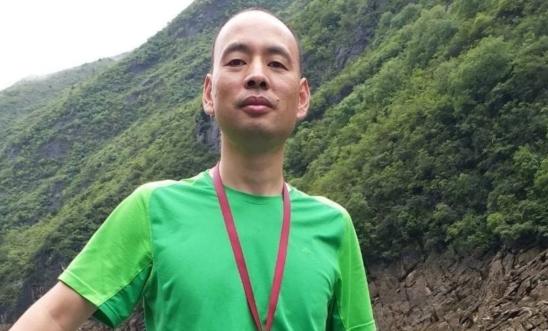
Press releases
China: Human rights lawyer at risk of torture after return from Laos

Lu Siwei is being held in the Xindu Detention Centre in Sichuan province, southwestern China
Countries in Asia under pressure into making illegal forcible returns
‘Lu Siwei’s confirmed detention in China is a heartbreaking outcome for his family’ - Sarah Brooks
Reacting to the confirmation of the detention of Chinese human rights lawyer Lu Siwei, who was arrested in Laos in July, Amnesty condemned his return to China, and warned that he is now at risk of torture.
Lu is a human rights lawyer who rose to prominence for his role in seeking to defend one of 12 Hongkongers who were arrested in 2020 after fleeing Hong Kong by boat and being intercepted by the Chinese Coast Guard. In response, provincial judicial authorities suspended Lu’s license to practice law.
Prior to this high-profile case, Lu was best known for working extensively to support human rights defenders, including representing the case of Chengdu Tiananmen Square commemorations, human rights lawyer Yu Wensheng, famous poet Wang Zang, and others in the Chinese legal community who were targeted in the “709 crackdown” in 2015.
Lu Suwei’s family have been informed by Chinese authorities that he is being held in the Xindu Detention Centre in Sichuan province, southwestern China.
According to Lu’s wife Zhang Chunxiao, he was detained by Lao police on 28 July while he was boarding a train bound for Thailand on charges of travelling on fraudulent documents. He was planning to travel onward to the USA to rejoin his family. In Laos, he was not allowed to meet with a lawyer or representatives of his family.
Sarah Brooks, Amnesty International’s Deputy China Director, said:
“Lu Siwei’s confirmed detention in China is a heartbreaking outcome for his family, with whom he had been attempting to reunite in the USA. Now, rather than being with his wife and young daughter, he is at grave risk of torture and other ill-treatment.
“Having been arrested in Laos after leaving China, it appears the Lao government has forcibly repatriated Lu in an egregious violation of its obligations under international law. This long-feared outcome is compounding the total lack of transparency that the Lao authorities displayed in this case.
“Lu's reported reappearance in a Chinese detention centre is the latest chilling example of the Chinese government’s determination to pursue its critics even beyond China’s borders, and its ability to do so especially in countries that are receptive to Beijing’s pressure and influence.
“Lu has been targeted solely for his legitimate work defending human rights and must be released. Pending his release, the Chinese authorities should ensure he is granted unrestricted access to a lawyer of his choosing and allowed to communicate with relatives.”
Asian countries pressured by China into making illegal forcible returns
Amnesty and others had urged the Lao authorities to ensure Lu’s access to the relevant UN authorities and a lawyer of his choice, and to respect their obligations under the UN Convention against Torture not to return Lu to China.
Under general international law and as a state party to the UN Convention against Torture and Other Cruel, Inhuman or Degrading Treatment or Punishment, the Lao government must not return a person to a place where they are at real risk of being subjected to torture or other serious human rights violations.
Southeast Asian governments have frequently been pressured into forcibly returning vulnerable individuals back to China, where they have faced arbitrary detention, unfair trials, torture, enforced disappearances, and other ill-treatment. Gui Minhai, a bookseller, was disappeared in Thailand in 2015 only to resurface in China without his passport. In August 2022, activists and media reported the disappearance of Chinese democracy activist Dong Guangping from Vietnam into Chinese custody. And in August 2023, Laos-based activist Yang Zewei was reported to be held in a detention centre in China after being arrested in Vientiane, the Lao capital.